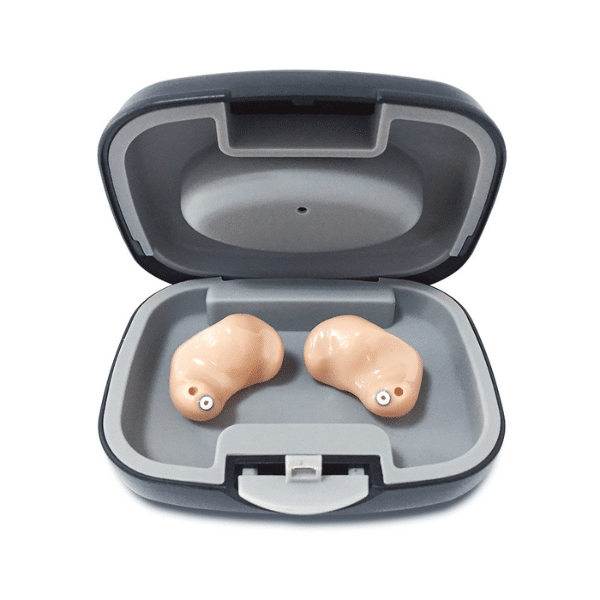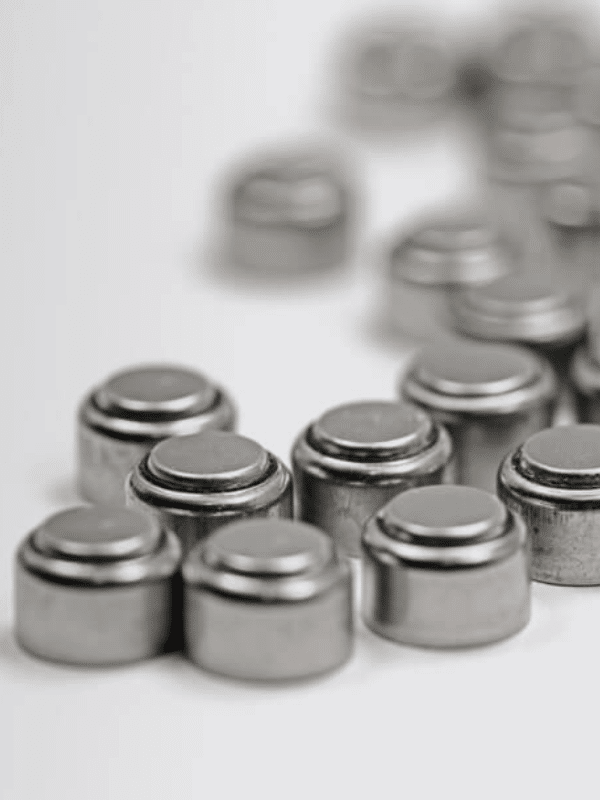Hearing Aid Care
To optimize the functionality and lifespan of your hearing aids, it is crucial to prioritize proper cleaning and maintenance practices. By dedicating just a few moments each day to the upkeep of these remarkable devices, you can ensure their long-term effectiveness. Here are some invaluable tips to help you gain a comprehensive understanding of how to effectively care for your hearing aids and maximize their utility:

Cleaning
- Carefully clean your hearing aids daily using a soft, dry cloth.
- Do not use water or any cleansers on your devices to prevent moisture damage.
- Store your aids in a dehumidifier kit to reduce moisture buildup.
- Regularly remove earwax from your device using a wax loop or brush.
- Maintain sound clarity by replacing your wax filters every 1-2 months or whenever sounds appear weak.
- If you notice your earmolds or tubing becoming stiff, dry, discolored, or cracked, arrange an appointment with us for a replacement.

Storage
- Whenever you are not wearing your hearing aid, leave the battery door open to prevent moisture build-up.
- Store your device in a cool, dry place to protect it from humidity and excessive heat.
- It is recommended to keep your hearing aid in a protective case instead of putting it in your pocket or wrapping it in a tissue.
- Please be aware that small hearing aids can pose a choking hazard, so keep them out of reach from pets and children.

General Care
- It is important to keep hearing aids dry. Remember to take them out before showering, swimming, or entering a sauna or steam shower.
- In case your devices get wet, promptly open the battery door and remove the battery. Please contact our office to schedule an appointment to ensure they have not been damaged.
- Personal products such as hair spray, sunscreen, makeup, or lotion have the potential to harm your devices. Make sure to remove your hearing aids before using these items.
- To maintain optimal performance, it is advised to schedule routine maintenance and performance checks at our office.
- Lastly, handle your hearing aids with care and avoid dropping or hitting them on hard surfaces.
Hearing Aid Batteries

Depending on the specific model of your hearing aid, you may have the option of choosing rechargeable styles. These styles offer the convenience of never having to worry about changing your hearing aid’s batteries again. However, for most hearing aid styles, battery replacement is typically required every 5 to 21 days. The frequency of battery replacement depends on factors such as the style of your hearing aid, the size of the battery, and how often you use your device.
To help prolong the lifespan of your batteries, consider the following tips and suggestions:
- Proper disposal of dead batteries is crucial as they may leak or corrode your hearing aid. Ensure they are discarded immediately.
- It is important to store your batteries in a dry location that is inaccessible to pets and children. Avoid placing them in the refrigerator.
- Batteries usually come with removable tabs. To preserve battery power, it is advisable not to remove the tab until you are ready to use the battery.
- Under no circumstances should batteries be placed in the mouth. If a battery is accidentally swallowed, contact the battery ingestion hotline immediately. The hotline number can be found on the back of each pack of batteries.
By following these guidelines, you can ensure optimal battery performance and contribute to the longevity of your hearing aid.
